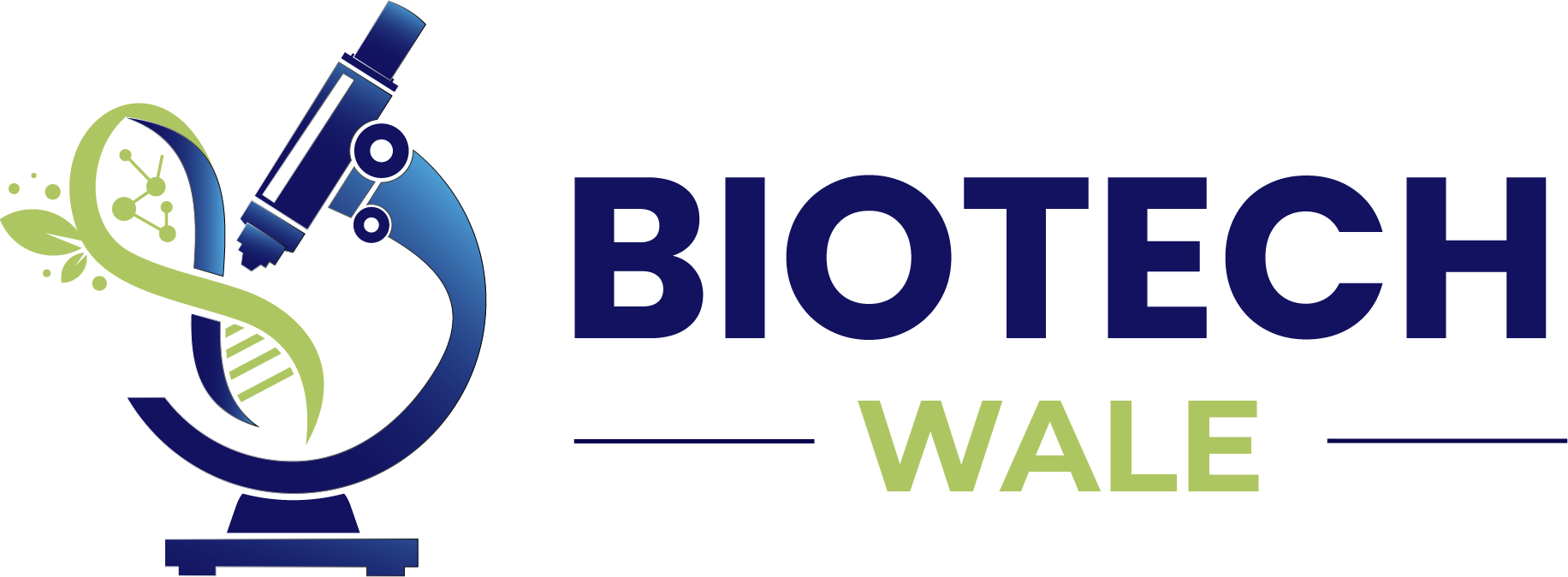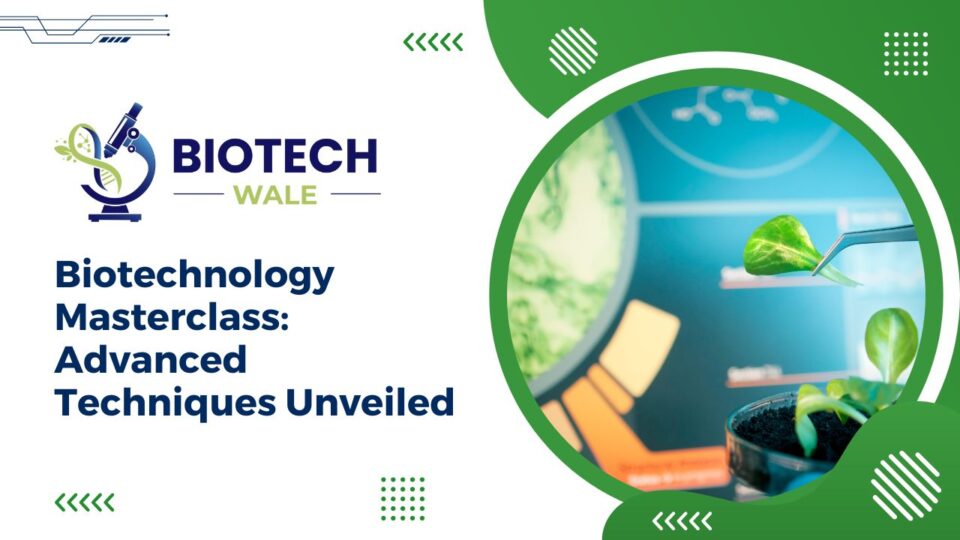Introduction to Biotechnology
Welcome to the Biotechnology Masterclass where we dive deep into the fascinating world of advanced techniques shaping the future of scientific discovery. Get ready to unlock the mysteries of DNA, explore cutting-edge gene editing technologies, and ponder the ethical considerations surrounding biotech research. Join us on this exciting journey through the realm of biotechnology where innovation knows no bounds!
The Importance of Advanced Techniques in Biotechnology
In the world of biotechnology, advanced techniques play a crucial role in pushing the boundaries of scientific discovery. These cutting-edge tools and methodologies enable researchers to delve deeper into the complexities of biological systems, paving the way for groundbreaking innovations. By harnessing these advanced techniques, scientists can unravel intricate molecular mechanisms, uncover hidden patterns in genetic data, and engineer novel solutions to pressing global challenges.
The importance of these advanced techniques cannot be overstated. From synthetic biology to genome sequencing, each method offers unique insights that drive progress in fields such as medicine, agriculture, and environmental conservation. With continuous advancements in technology and methodology, biotechnologists are equipped with powerful tools to tackle some of the most pressing issues facing humanity today.
As we venture further into uncharted territories of biotechnology, it is clear that embracing and mastering these advanced techniques is essential for driving future breakthroughs and shaping the course of scientific innovation.
Synthetic Biology: Creating Life from Scratch
Synthetic biology is the cutting-edge field that pushes boundaries by designing and constructing biological systems from scratch. Imagine creating organisms with specific functions tailored to our needs, like producing biofuels or even fighting diseases. It’s like playing genetic Lego, but on a whole new level.
By combining engineering principles with biology, scientists can tweak genetic codes to achieve remarkable outcomes. From bacteria engineered to break down environmental pollutants to yeast programmed for drug synthesis, the possibilities are endless.
The process involves deconstructing natural biological components and reassembling them into novel configurations. This approach allows researchers to experiment with DNA sequences in ways previously unimaginable.
With synthetic biology paving the way for groundbreaking discoveries, we’re witnessing a revolution in how we perceive life itself. The potential applications span across various industries, promising a future where custom-designed organisms could address pressing global challenges.
CRISPR-Cas9: Revolutionizing Gene Editing
The revolutionary CRISPR-Cas9 technology has taken the world of biotechnology by storm. It allows scientists to precisely edit genes with unprecedented accuracy and efficiency.
Imagine being able to target specific sections of DNA, cut them out, and replace them with desired sequences. This level of precision was once just a dream but is now a reality thanks to CRISPR-Cas9.
Gone are the days of laborious gene editing techniques that were time-consuming and error-prone. With CRISPR-Cas9, researchers can make targeted changes to genetic material quickly and effectively.
This breakthrough technology opens up endless possibilities for treating genetic disorders, creating genetically modified organisms for agriculture, and even potentially curing diseases like cancer in the future.
CRISPR-Cas9 truly represents a new era in biotechnology where the boundaries of genetic manipulation are constantly being pushed further than ever before.
RNA Interference: Controlling Gene Expression
RNA interference, also known as RNAi, is a powerful tool in the realm of biotechnology. It allows scientists to manipulate gene expression by silencing specific genes at the RNA level. This process involves small pieces of RNA molecules that target and degrade mRNA, preventing the translation of proteins.
By harnessing RNAi technology, researchers can uncover the functions of different genes and potentially develop novel therapies for genetic disorders and diseases. The ability to control gene expression with such precision opens up new possibilities for personalized medicine and targeted treatments.
RNA interference has revolutionized our understanding of molecular biology and has paved the way for advancements in fields like oncology, neurology, and immunology. With its potential to silence harmful genes or boost beneficial ones, RNAi holds great promise for future medical breakthroughs.
As we continue to unravel the complexities of gene regulation through RNA interference techniques, we move closer towards unlocking the full potential of biotechnology in addressing health challenges worldwide.
Genome Sequencing: Unlocking the Mysteries of DNA
Delving into the intricate world of biotechnology, genome sequencing stands out as a groundbreaking technique that unveils the mysteries encased in our DNA. By deciphering the genetic code embedded within every cell, scientists can unravel a wealth of information crucial for understanding life at its core.
Genome sequencing not only allows us to map out an individual’s unique genetic makeup but also provides insights into how genes function and interact with each other. This invaluable knowledge opens doors to potential treatments for genetic disorders, personalized medicine tailored to one’s specific needs, and even shedding light on evolutionary relationships between species.
With advancements in technology, genome sequencing has become faster, more accurate, and cost-effective. The ability to sequence entire genomes swiftly enables researchers to identify disease-causing mutations, track outbreaks of infectious diseases, and explore biodiversity on a grand scale.
As we continue to unlock the secrets hidden within our DNA through genome sequencing, the possibilities for groundbreaking discoveries and innovations in biotechnology are limitless.
Stem Cell Technology: Advancements and Controversies
Stem cell technology has been making waves in the field of biotechnology, offering promising advancements and stirring up controversies along the way. These unique cells have the remarkable ability to develop into different types of cells in the body, holding immense potential for regenerative medicine and disease treatment.
Advancements in stem cell research have led to breakthroughs like tissue regeneration, personalized medicine, and even potential cures for previously incurable conditions. The ability to repair damaged tissues or organs using stem cells brings hope for patients suffering from various diseases.
However, with great promise comes ethical debates and controversies surrounding the use of embryonic stem cells. The source of these cells raises complex moral questions that continue to spark discussions within the scientific community and beyond.
Despite these controversies, ongoing research is pushing boundaries in harnessing the power of stem cells for medical applications. As technology advances and understanding deepens, we can expect further exciting developments on this frontier of biotechnology.
Bioinformatics: Utilizing Data for Breakthroughs
Bioinformatics is like the secret sauce in the recipe of biotechnology. It involves crunching massive amounts of data to unveil hidden patterns and create breakthroughs that push the boundaries of science. By integrating biology, computer science, and statistics, bioinformatics allows researchers to make sense of complex biological systems with precision and efficiency.
Imagine unraveling the genetic code like decoding a cryptic message from nature itself. This intricate process helps scientists identify genes linked to diseases, predict protein structures, and even design new drugs tailored to individual genetic variations. The power of bioinformatics lies in its ability to transform raw data into actionable insights that drive innovation and discovery.
From analyzing DNA sequences to modeling biological pathways, bioinformatics plays a pivotal role in shaping the future of medicine and agriculture. By harnessing the potential of big data analytics, researchers can unlock new solutions for pressing global challenges such as disease outbreaks and food shortages.
In a world driven by technological advancements, bioinformatics stands at the forefront of scientific progress – paving the way for groundbreaking discoveries that have the potential to revolutionize our understanding of life itself.
Ethical Considerations in Biotechnology Research
As biotechnology continues to advance at a rapid pace, ethical considerations in research become increasingly important. The manipulation of genes and organisms raises questions about the potential consequences on ecosystems and human health.
Scientists must navigate the fine line between pushing boundaries for scientific progress and ensuring that their work is conducted ethically. Issues such as informed consent, privacy, and access to genetic information are critical in this field.
The debate around genetically modified organisms (GMOs) highlights the ethical dilemmas surrounding altering natural processes. Questions about playing “nature’s role” by creating organisms not found in nature raise concerns about unforeseen consequences.
Additionally, issues related to gene editing technologies like CRISPR-Cas9 spark debates on whether we should modify human DNA and where to draw the line between therapy and enhancement.
Ethical considerations in biotechnology research are complex and multifaceted, requiring ongoing dialogue among scientists, policymakers, ethicists, and society as a whole.
The Future of Biotechnology
As we look ahead to the future of biotechnology, it’s clear that exciting advancements are on the horizon. From personalized medicine tailored to individual genetic profiles to environmentally friendly bioprocessing techniques, the possibilities are truly endless.
Researchers are delving into cutting-edge areas like gene therapy and regenerative medicine, offering hope for treating previously incurable diseases. The integration of artificial intelligence and machine learning is revolutionizing drug discovery processes, making them faster and more efficient than ever before.
Biotechnology is also playing a crucial role in sustainable agriculture by developing genetically modified crops with enhanced nutritional value and resilience to climate change. Furthermore, bioengineered materials are paving the way for innovative solutions in various industries, from healthcare to renewable energy.
With ongoing breakthroughs in CRISPR technology, stem cell research, and synthetic biology, we can anticipate even more groundbreaking developments shaping the landscape of biotechnology in the years to come.
Conclusion
In the fast-paced world of biotechnology, advanced techniques play a crucial role in pushing the boundaries of scientific discovery. From creating life from scratch with synthetic biology to revolutionizing gene editing with CRISPR-Cas9, researchers are constantly unveiling new possibilities.
As we unlock the mysteries of DNA through genome sequencing and harness the power of stem cell technology, it’s essential to consider the ethical implications that come with these groundbreaking advancements. By utilizing bioinformatics and data analysis, scientists can drive innovation and pave the way for future breakthroughs in biotechnology.
While there are controversies surrounding some aspects of biotechnological research, it’s clear that this field holds immense potential for improving human health and addressing pressing global challenges. The future of biotechnology is bright, promising exciting developments that could change our world as we know it.





Average Rating